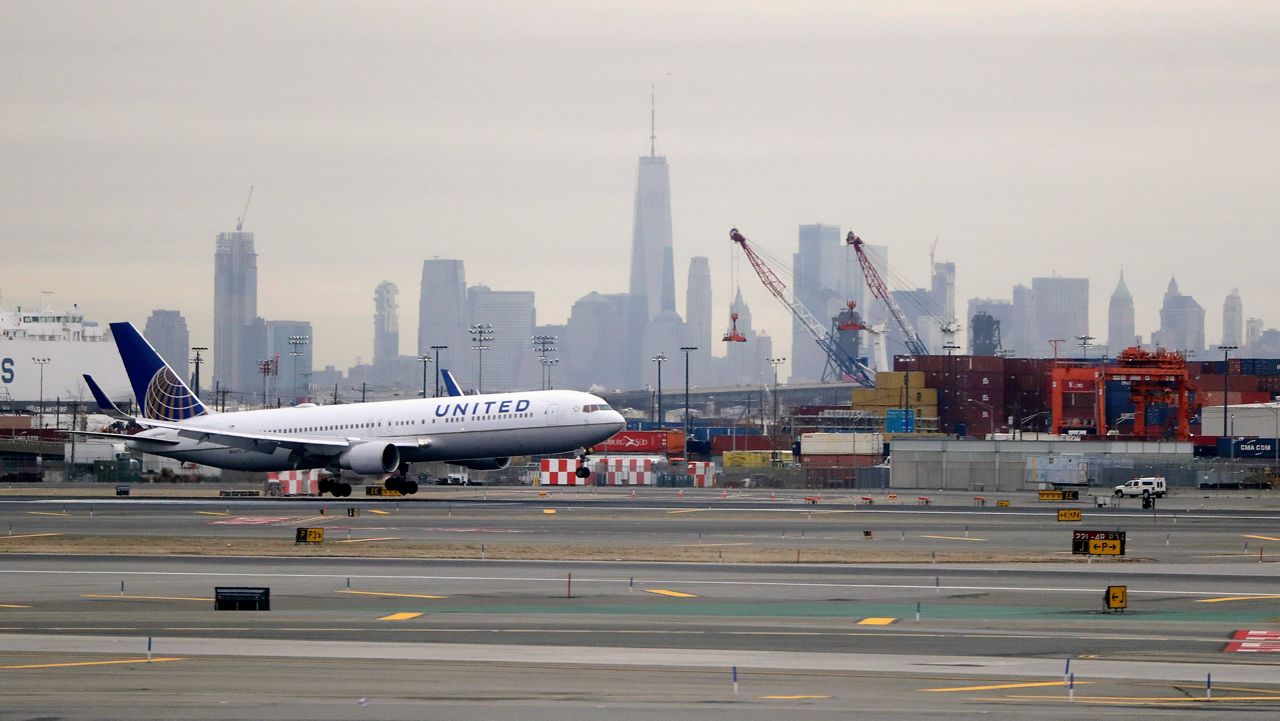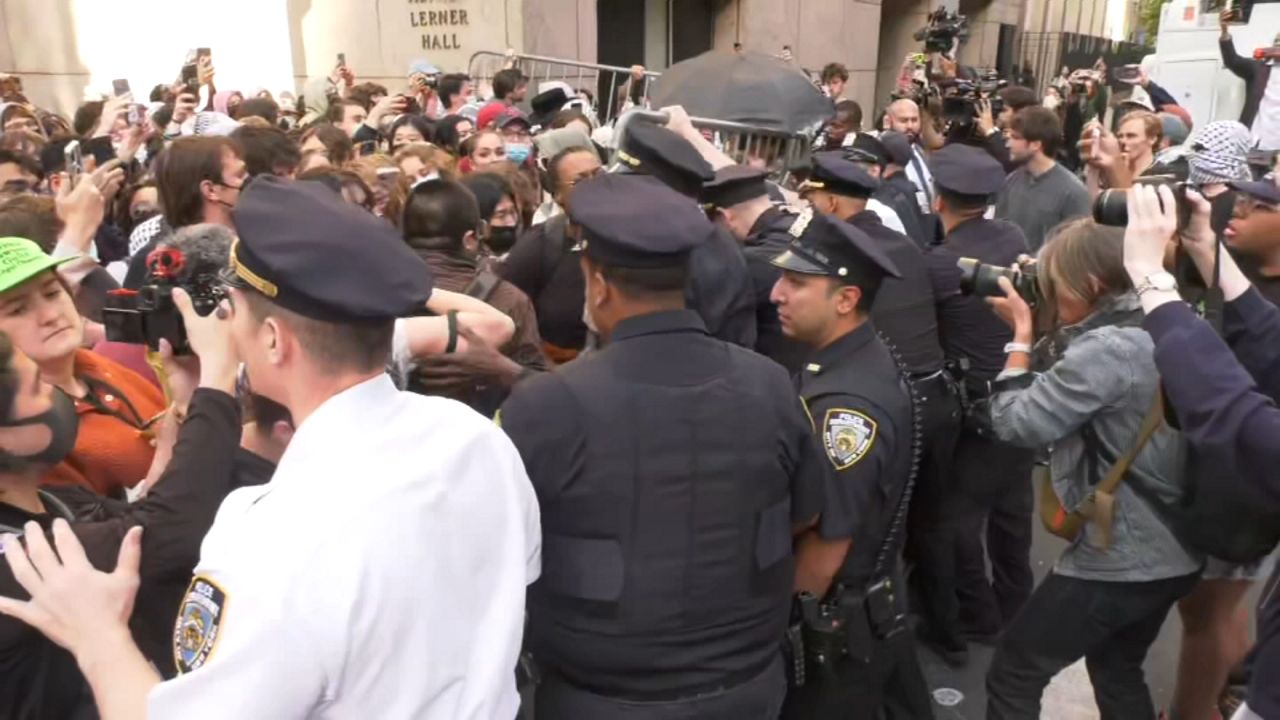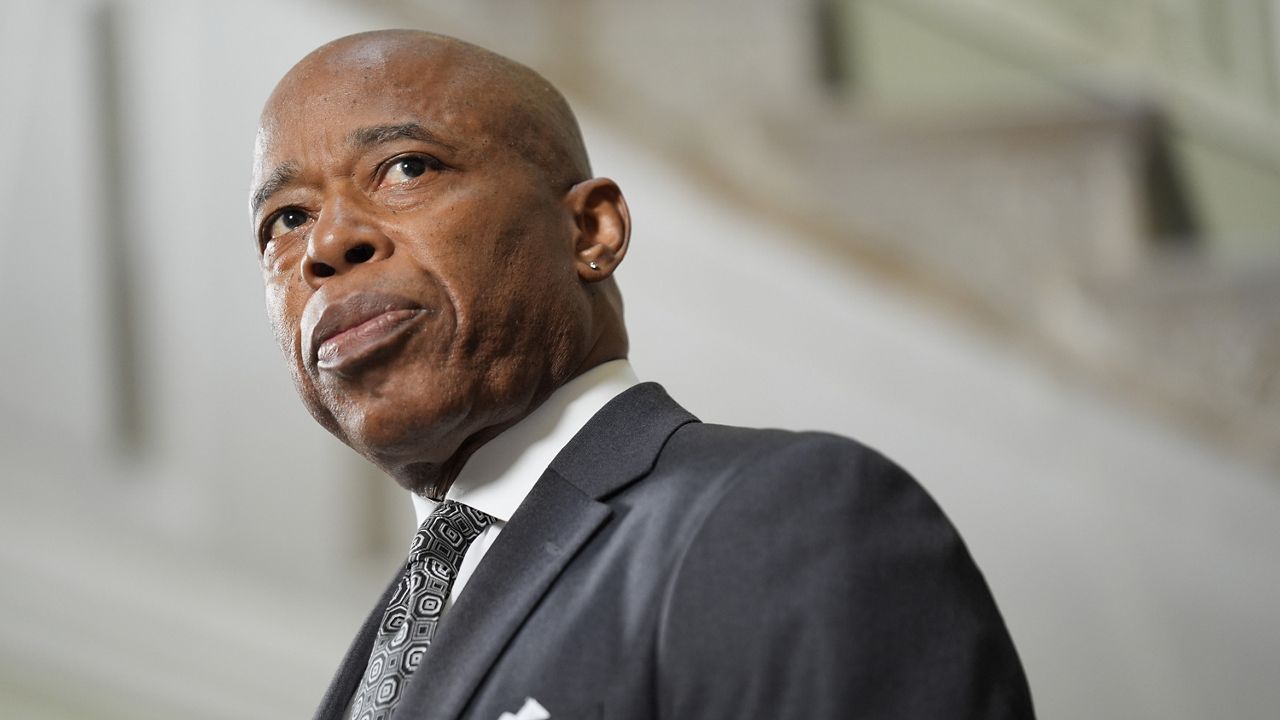Rikers Island's days are officially numbered.
The City Council on Thursday approved the controversial proposal to close Rikers Island by 2026 and replace the massive jail complex with four borough-based jails.
"We believe in redemption, and today's vote is a vote for redemption," Mayor Bill de Blasio said at a news conference after the vote.
JAILS IN FOUR BOROUGHS
As part of the plan, which would cost more than $8 billion, the jails would be located in every borough except Staten Island. The jail sites, in downtown Brooklyn, Kew Gardens, Queens, and lower Manhattan, already exist and would be significantly renovated.
The Bronx facility would be brand new. The location of that Bronx jail has proven to be the most contentious. The city plans to build a brand new 24-story facility where an NYPD tow pound sits. It would not be adjacent to the courts. Some advocates and family members have called for all the jails to be located near the courts, as opposed to Rikers, which sits on an island and is far from any courthouse.
The jail buildings will be shorter and have fewer beds, and women detainees will be housed in one facility.
City officials say a steep drop in the jail population has made it feasible to close Rikers, a complex of 10 jails on an island between Queens and the Bronx that mainly houses inmates awaiting trial.
The measure passed Thursday 36-13. The council bills now head to de Blasio's desk for his signature.
Twenty-six votes were needed in the City Council for the plan to pass. Many bills that make it to the floor of the nearly-unanimously Democratic City Council easily pass. A sign of the factions: more than 10 council members voted against the plan.
The 13 council members who voted against the proposal included some unhappy with the administration's decision to spend billions of dollars building new jails.
"We should be fighting mass incarceration and all cages," Democratic Brooklyn Councilman Carlos Menchaca said during the vote.
Others would not support having a jail in their borough.
"The plan does not take into consideration the risk that these jails will present in the event of an emergency, nor does it consider the possibility of future spikes in crime," Democratic Queens Councilman Robert Holden said.
It was an emotional vote for some. Democratic Queens Councilman Danny Dromm cast his vote in honor of those who died while in custody, including detainees who were never convicted of a crime.
Their names became the face of a movement: Kalief Browder, who committed suicide after spending years in solitary confinement; Jerome Murdough, a mentally ill homeless former U.S. Marine who died in an overheated cell; and most recently, Layleen Polanco, a transgender woman who died in solitary after suffering a seizure.
"I think it's really important to remember those who died," Dromm said.
Closing Rikers has been two-and-a-half years in the making. Former City Council Speaker Melissa Mark-Viverito, who first called for the closure, watched as the votes were cast.
"This is about humanity at the end of the day. Not only those who have suffered the injustices of Rikers, this is about their family members. It is about their children. It is about their communities," said Mark-Viverito, who is running for Congress.
The full City Council vote followed the Land Use Committee approving the plan Wednesday.
In early September, members of the City Planning Commission voted 9 to 3 on the plan to permanently close Rikers and replace it with the new jails.
THE FACTIONS OVER THE PLAN
As the de Blasio administration courted votes this week, it committed millions of dollars towards citywide investments aimed at reforms.
On Tuesday, City Council Speaker Corey Johnson promised the city would lower the height of the proposed jail facilities, and de Blasio announced a commitment to pump $19 million into an expansion of the city's jail-to-jobs program.
"We're going to get off Rikers once and for all," Mayor Bill de Blasio said at a news conference. "We're going to have borough-based facilities once and for all."
For years, advocates have demanded the decades-old jail complex be shut down. Rikers has been notorious for a culture of violence and abuse, including sexual assault. The jail complex has been subject to a number of investigations.
After initial opposition, de Blasio now supports closing Rikers, one of the world's largest jails. He and supporters argue the jail complex is outdated, inhumane, and too far for families to visit inmates. The city's efforts fall in line with a push nationwide to move away from tough-on-crime policies and attempt to end mass incarceration, which mainly impacts people of color.
But there is a wide range of opinions on how to deal with Rikers that is splitting New Yorkers, including criminal justice reform advocates:
- Some back the plan
- Some don't support building new jails, fearing building them will stall efforts to further reduce the city's jail population
- Some don't want a jail in their neighborhood
- Some New Yorkers support Rikers and it to stay
The Correction Officers' Benevolent Association, the union for correction officers, says the proposal is a mistake. The union demands Rikers stay open and for the city to fix the problems there now.
"Why should we wait? Why should I put on my uniform, come to work, and have City Hall tell me, 'Don't worry: in seven years, we'll have safer jails. In seven years, we're going to have smaller jails,'?" said Elias Husamudeen, the president of the Correction Officers' Benevolent Association.
With falling crime rates, the number of people incarcerated in the city on a daily basis has declined from a high of nearly 22,000 in 1991 to about 7,000 today. City officials announced this week that they believe they can shrink the jail population even further by 2026, to just 3,300 prisoners.
Backers of the jail overhaul say they expect the city's jail population will keep dropping because of criminal justice reforms.
Several district attorneys in the city have said they are no longer prosecuting small-time marijuana possession cases. The police department, after ages of measuring officers by how many people they put in handcuffs, has slashed arrests for misdemeanors as officers have been encouraged to write tickets for minor offenses, rather than drag people to jail.
A new state law is set to eliminate cash bail for most misdemeanor and nonviolent arrests. Once the law goes into effect in January, the expectation is that far fewer lower-income people will be held in jail while awaiting trial.
Critics of the plan are skeptical, however, saying fewer cells may mean more violent criminals on city streets.
The plan met some resistance from residents of neighborhoods surrounding the jail sites. City Council leaders announced Tuesday they would decrease the heights of the planned jails to win support. A prison skyscraper planned for lower Manhattan was cut from 45 to 29 stories and a proposed Brooklyn jail went from 39 to 29 stories. Margaret Chin, a Democrat who represents lower Manhattan in the City Council, said the shorter jail tower planned for her district "will no longer be out of scale with the neighborhood."
But others say they don't want any new jails at all. Marlene Nava Ramos, a member of the advocacy group No New Jails NYC, said "the idea is to begin actually decarcerating New York City instead of building new jails."
Martin Horn, who headed the city Department of Correction from 2003 to 2009 under Mayor Michael Bloomberg, said reducing the jail population to 3,300 would be "a historic accomplishment" but he questioned the 2026 deadline for completing the new jails.
"My experience is that city construction projects of this magnitude take far longer," said Horn, who now teaches at the John Jay College of Criminal Justice.
Protesters opposed to the plan demonstrated outside City Hall throughout the day Thursday, with some chaining themselves to the gates. Police arrested several protesters.
Rikers Island has housed jail inmates since the 1930s and has long been known for brutality. The jail complex saw hundreds of stabbings each year during the 1980s and early 1990s.
More recently, a 2014 Associated Press investigation detailed dozens of inmate deaths, including that of a homeless ex-Marine who essentially baked to death in a hot cell.
THE FUTURE OF THE LAND OF RIKERS
Before the vote Thursday, the city moved to at least have a legally binding commitment to ensure no new jails could be built at Rikers in the future. With 11 votes in favor and 2 opposed, the City Council's Land Use Committee took a rare step last week to block the construction of any future correctional facility on the land of Rikers Island.
"We're giving the public an assurance that we are going to close Rikers, for good," Democratic Brooklyn Councilman Stephen Levin said.
"Once Rikers is closed at the end of December 31, 2026, we will change the zoning on that land. It will be a public space, and therefore detainees will never be housed there again," said Democratic Bronx Councilman Rafael Salamanca, the chair of the Land Use Committee.
That proposal calls for filing a city map change application with the City Planning Commission so the area cannot be used as a correctional facility. The mayor appoints several members of the City Planning Commission.
"We will be filing a ULURP [Uniform Land Use Review Procedure] application to essentially make it impossible to have incarceration on Rikers Island," said Dana Kaplan, deputy director for the Mayor's Office of Criminal Justice.
With the Land Use Committee vote on the map change done, the application will move through a process which typically takes months and goes before local community boards and the borough president before it heads back to the Council for a final vote.
It's not yet clear what the land of Rikers Island will be used for in the future. Some have suggested using it for energy purposes, such as consolidating water and energy treatment plants, because the land is toxic and not environmentally-friendly; much of the land is landfill.
------
Looking for an easy way to learn about the issues affecting New York City?
Listen to our "Off Topic/On Politics" podcast: Apple Podcasts | Google Play | Spotify | iHeartRadio | Stitcher | RSS









